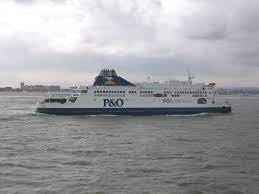24 March 2022
Fire and Rehire
P&O
By Robert Kilconner
No one likes to see people losing their jobs so there is widespread sympathy for those sacked by P&O ferries last week. Ministers have been outraged. Business leaders declare Britain disgraced and the press sell copy. Well they would, wouldn’t they? Articles about lifelong loyalty to the company being betrayed, suggestions (denied by the company, and in any case hardly the point) that a pensions deficit may fall on the taxpayer, and even a piquant sauce of racism to spice matters up. Arab controlled, wasn’t it? Not many of the articles have missed that point. If P&O had been controlled from Jerusalem there would doubtless be references to the Protocols of the Elders of Zion, not approving of that ghastly anti-Semitic fraud, no, of course not, that would be made quite clear but just to give a little context. Surely in the face of such universal outrage it behoves the Shaw Sheet to join the hue and cry rather than asking ourselves the obvious question of what we would have done had we been directors of P&O ferries.
Something clearly had to be done. The company was returning very substantial losses and was uncompetitive against Irish Ferries who have staffed their boats with Eastern European crew members for some time. P&O had tried to stem their losses through the sale of one of their ships but unsuccessfully, so somehow or other they had to find a way of getting costs down and that meant cutting wages and manning levels.
The method used to achieve this was certainly brutal, involving, as it did, a lack of consultation, use of the different rules applying to vessels registered under foreign flags, a surprise announcement and heavyweight security teams. None of that is attractive, and we have no idea whether, as alleged by some, there was a procedural breach of UK employment law, but would even the most touchy-feely procedure have made any useful difference to the result? In the end the company needed to cut its costs by replacing its existing team with one made up in part of its previous employees employed at lower rates and in part of cheap eastern European labour; whether that was done at a stroke or through a lengthy consultation process would in the end make little difference to those affected. What is more, choosing the latter course would have simply opened the process to political interference (does anyone seriously think that politicians would have been able to resist a grandstanding fest?), strikes, lockouts and the rest, all very good for the soul no doubt but inflicting further damage on a distressed company for no very obvious gain. You can see why management might have preferred the more abrupt course.
This article does not seek to discuss whether P&O could have handled matters better. Perhaps they could: perhaps they could not. The point is that when companies operating in declining industries find themselves under pressure from cheaper foreign competitors they either have to be protected or they will have to move large parts of their business off shore so that they can make use of lower wages. That is why your computer is built in China, your car is built in Japan and your t-shirts are printed in some other country in the Far East. In the case of ferries the effect is more obvious because so much of their sailing is from British ports. After all, no one is suggesting that all goods arriving in the UK should be imported by carriers paying the British minimum wage. Perhaps they should or perhaps ferries spending more than a particular proportion of their time in UK ports should be a special case but simply to castigate the directors of a company forced to find its own solution to the problem is hardly a useful contribution to the debate.
And before you huff and puff about British jobs for British workers at a decent British rate, ask yourself this. The cleaner who comes in to dust your home or office: are they British or from abroad? The builders who did such a nice job on your extension: were they British or Polish? The nurses who look after you in hospital: where is their native land? Not fully analogous to the ferries of course because foreigners employed onshore are covered by minimum wage legislation but still the fundamental point is the same. Costs are kept down by bringing in foreign labour which will work for remuneration below the amounts acceptable by their British counterparts. Net result: a loss of British jobs.


